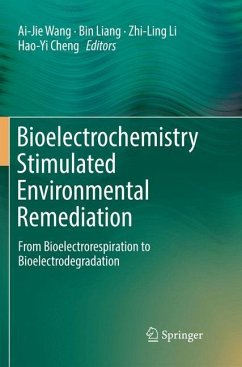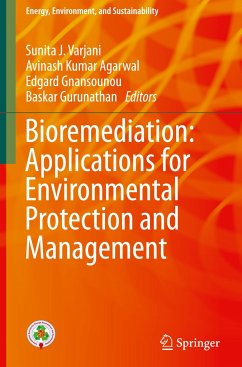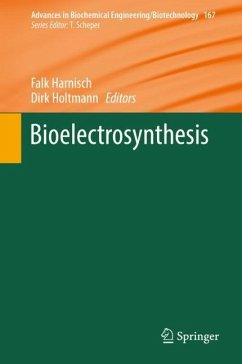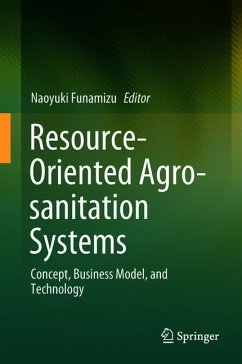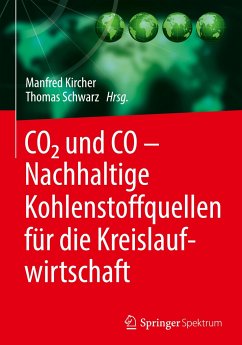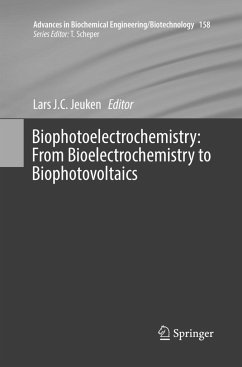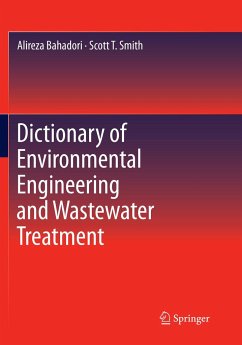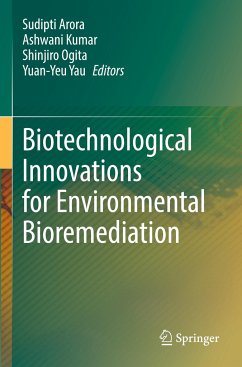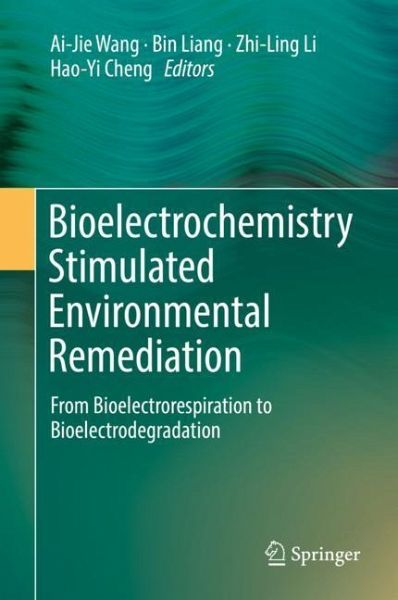
Bioelectrochemistry Stimulated Environmental Remediation
From Bioelectrorespiration to Bioelectrodegradation
Herausgegeben: Wang, Ai-Jie; Liang, Bin; Li, Zhi-Ling; Cheng, Hao-Yi

PAYBACK Punkte
38 °P sammeln!
This book reviews the latest advances in the bioelectrochemical degradation of recalcitrant environmental contaminants. The first part introduces readers to the basic principles and methodologies of bioelectrochemical systems, electron-respiring microorganisms, the electron transfer mechanism and functional electrode materials. In turn, the second part addresses the bioelectrochemical remediation/treatment of various environmental pollutants (including highly toxic refractory organics, heavy metals, and nitrates) in wastewater, sediment and wetlands. Reactor configuration optimization, hybrid ...
This book reviews the latest advances in the bioelectrochemical degradation of recalcitrant environmental contaminants. The first part introduces readers to the basic principles and methodologies of bioelectrochemical systems, electron-respiring microorganisms, the electron transfer mechanism and functional electrode materials. In turn, the second part addresses the bioelectrochemical remediation/treatment of various environmental pollutants (including highly toxic refractory organics, heavy metals, and nitrates) in wastewater, sediment and wetlands. Reactor configuration optimization, hybrid technology amplification and enhanced removal principles and techniques are also discussed.
The book offers a valuable resource for all researchers and professionals working in environmental science and engineering, bioelectrochemistry, environmental microbiology and biotechnology.
The book offers a valuable resource for all researchers and professionals working in environmental science and engineering, bioelectrochemistry, environmental microbiology and biotechnology.





